
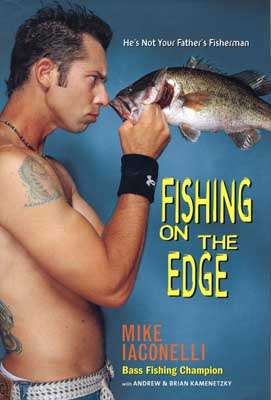
I was born in Philadelphia, but I grew up in Runnemede, N.J.

I got involved in fishing through my family; they all fished. We caught lots of trout and crappie and bluegill. It was kind of an accident that I got involved in bass fishing. When I was 11 or 12 years old, I was casting a Rapala floating minnow in the Pocono Mountains and caught a 2 1/2- or 3-pound bass on it. I’ve been hooked ever since.
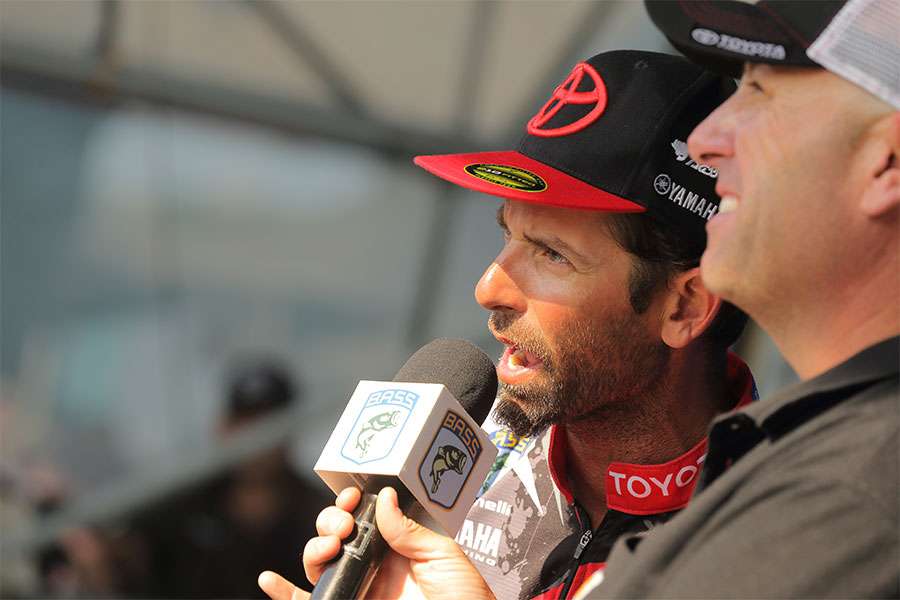
My first two fishing heroes were my grandfather (“Pop”) and my Uncle Don. I looked up to them as anglers and wanted to catch fish the way they did. Later, when I was 13 or 14 and had joined B.A.S.S. and started watching The Bassmasters on TV, I really admired Denny Brauer, Rick Clunn and Gary Klein. I even tried to emulate their fishing styles.

I caught a 14-1 on the second day of practice for the Elite Series tournament on Lake Amistad in 2006. Unfortunately, I wasn’t able to catch her again in the tournament! My biggest bass in a tournament also came at Amistad â in 2008. That fish weighed 12-13, and I caught it on a football jig.

The thing that stands out to me is that bass fishing is a puzzle. It’s constantly changing and never the same twice. It’s a Rubik’s Cube; you solve one side and then another. You don’t always figure out the entire thing, but it’s motivating to keep trying.

Lake Champlain is a very special place. It has a lot of history for me. It was one of the first big lakes I ever fished when my bass club went there in 1991. I also won my first big professional tournament there in 1999 (the Vermont Bassmaster Top 150). It’s one of the most dynamic big fish lakes in the country. You can catch a 5-pound largemouth on one cast and a 4-pound smallmouth on the next.
The Delaware River is obviously a favorite of mine, too. Not only because I won there, but because it’s where I cut my teeth and what I consider my home body of water.

From the standpoint of wanting to fish and eventually wanting to make a career out of it, it would be my grandfather and Uncle Don. But from a career standpoint, it would have to be my friend Pete Gluszek. I really looked up to him early in my career, not just in terms of fishing skills, but also because of his knowledge and understanding of the fishing business. He taught me a lot about gaining sponsorships and how to conduct myself in the industry. He has been a really big mentor for me.
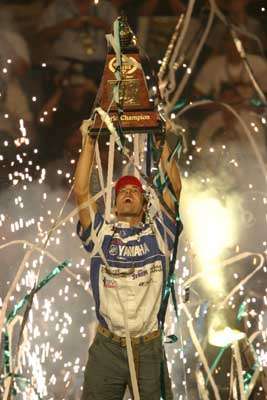
There are a few. One was when I won the Bassmaster Classic in 2003, but the first was when I won the Bassmaster Tour event on Lake Seminole. That was an important moment for me because the tournament was in the South â I didn’t live around there and wasn’t a favorite to do well. It also gave me an opportunity to be myself on national television.
But my win on the Delaware River in 2014 was one of the most amazing things in my entire career. That has become a huge moment, winning in front of my home crowd. It’s really special.

I want to win another Bassmaster Classic, another Angler of the Year award, another tournament. I’m a competitive person and that stuff keeps me going, but if it all went away tomorrow, I’d be very happy with what I’ve accomplished in my fishing career. I’ve done everything I ever wanted to do. When I see my Nation Championship trophy next to the Classic and AOY trophies, I still get chills.
Another thing for me has become the success of the Ike Foundation that Becky and I launched, getting kids out fishing. When it’s all said and done, and I’m not competing anymore for whatever reason, our hope is that it will still be going. I’m more proud of that than anything.

The biggest thing is that we’re attracting new people to fishing â especially young people. Through my travels I’ve seen more kids fishing lately than I’ve seen in a long time. We’ve got to get new people involved.
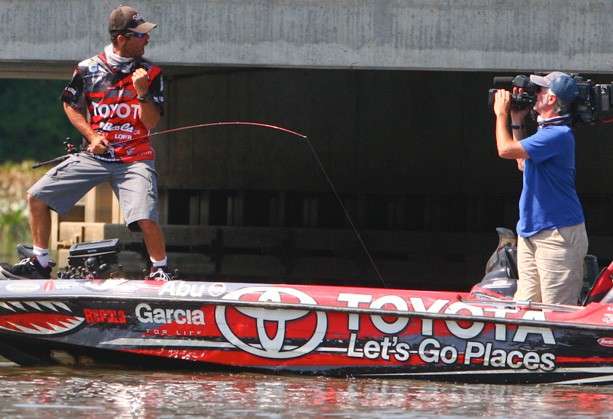
Getting people involved and making them aware of the opportunities for fishing that are out there. You don’t have to live on a giant reservoir to be an angler. There are opportunities everywhere, and we need to educate people about them. It’s easy to find places to fish if you live in Alabama, Texas or California, for example, but if you live in a more urban place, it’s not as easy. We need to give children that first experience of fishing. There’s a lot of kids in grade school or middle school — a critical age — who have never been fishing, and we need to make sure we let them try it early on.
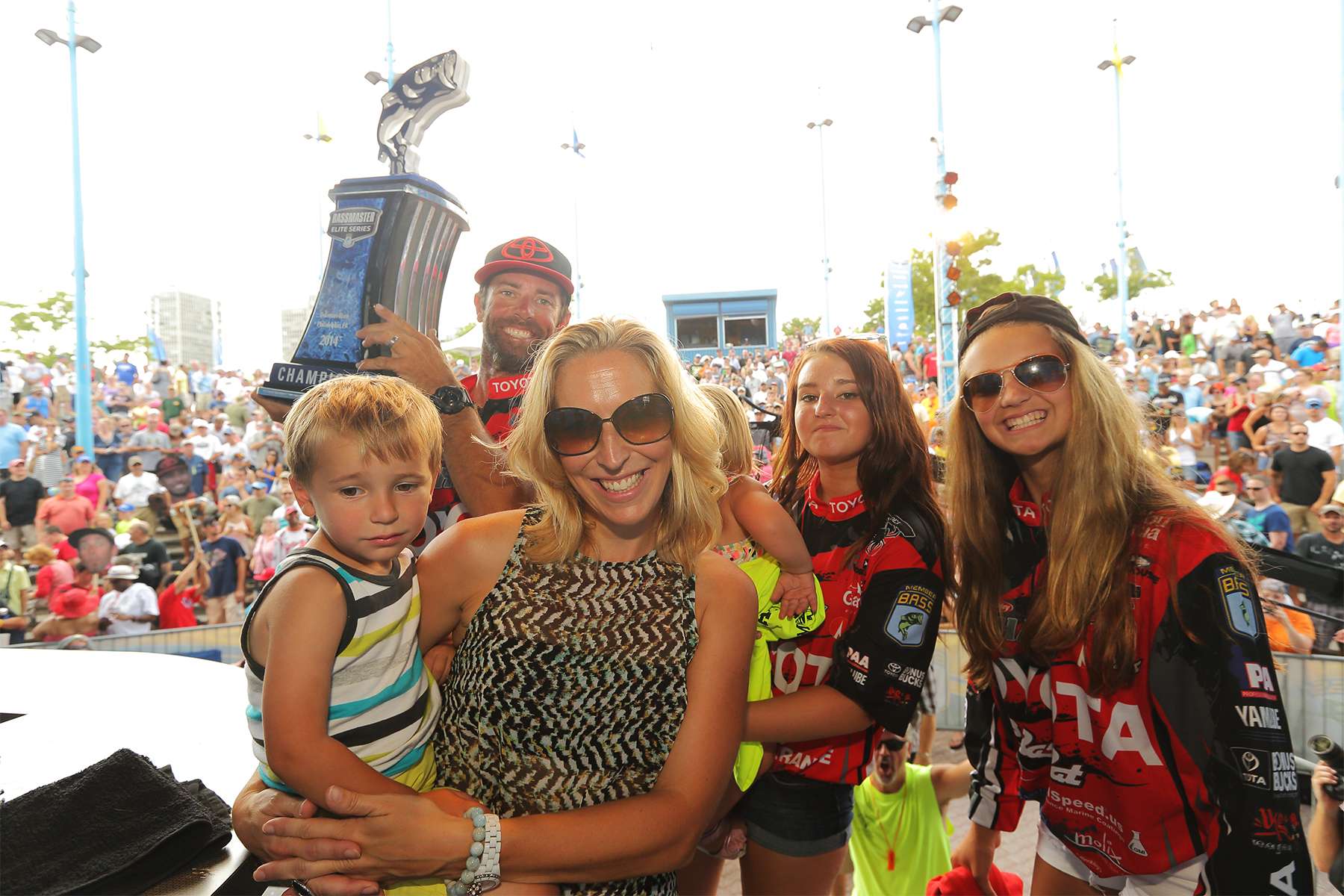
I’ve made some mistakes, but I’ve learned from them, and I think when you do that you become a better person. Almost everyone in the industry goes through some financial challenges, but those aren’t unique to bass fishing. I was lucky to have the support of my family and friends, and some things happened at the right time for me â just when I needed them or when I could make the most of them.

People expect a certain personality out of me all the time. I meet people in restaurants or at an airport, and they seem to think I’ll be screaming and jumping up and down. They don’t understand that I’m a pretty regular guy most of the time. And I go to flower shows and do family stuff whenever I can.
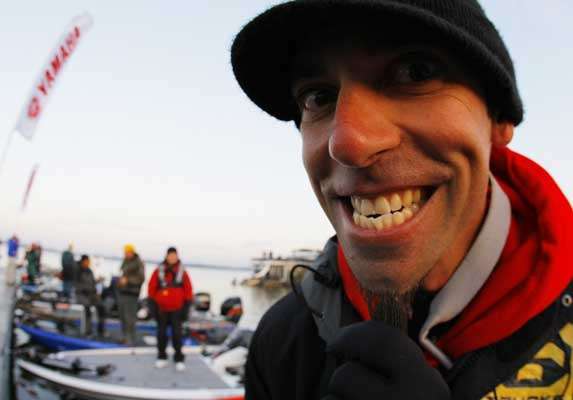
Early in my career, I tried to fit in. I tried to change who I was in order to become a professional angler. I don’t really want to go back and change anything, but it was a mistake to do that.
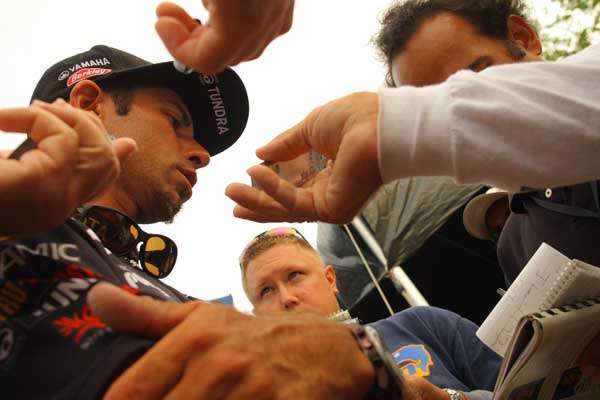
It wasn’t necessarily career advice â it was more life advice. From a very early age, I had a strong work ethic instilled in me by my family, especially my mom and Uncle Don. They always told me to work hard and do my best. My main strengths in fishing have come from that.
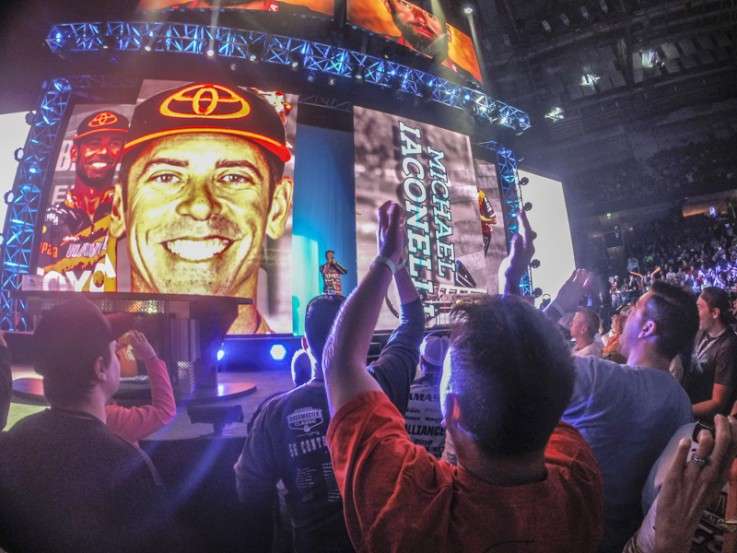
I think I have two. The first is my work ethic. I fish dark to dark in practice, I do a tremendous amount of preparation before each tournament and I stay focused and organized. My other strength is versatility. A lot of people might not think growing up in New Jersey is a good way to pick up skills as a bass angler, but it helped me to be versatile. As a professional angler, it’s good to have a strength, but you must be versatile to be consistent.

Fishing super deep water â 30 feet and deeper â is definitely a weakness for me. Another area I need to improve on is sight fishing. I travel with two of the best sight fishermen in the world â Ish Monroe and John Crews â but I really need to work on it.

The question is “What makes the Elite anglers so good?” and I tell them that bass fishing is like a puzzle. The Elite anglers are the best in the world at figuring out that puzzle. When they catch a bass, they ask why and come up with the answers so they can catch more.
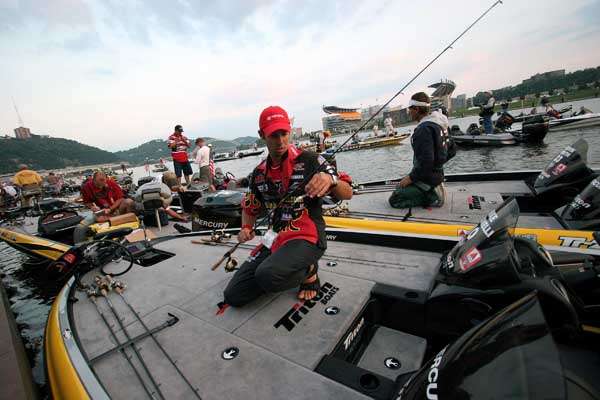
Actually, I have a couple. The first has to do with the number of rods on my deck in the morning. I’m a guy who usually has a lot of rods out there because I do a lot of junk fishing, but I never have an odd number on the deck. It might be four or it might be 18, but it’ll never be three or 17. My other superstition has to do with apparel. If I’m going good, I’ll keep wearing a piece of apparel. In 2006, when I won AOY, I wore the same cap every day. I do it with socks or shoes, too. And if things go bad, I’ll change everything up. I’ll add a disclaimer here that this applies to every piece of apparel except my underwear. I don’t want anyone thinking I don’t change my underwear.

I have some detractors out there, but I hope that everyone who knows me â whether they like me or not â understands that I love this sport and that I work very hard to grow it and improve it. If people realize that, then I’m happy. If you fast forward 20 years and you could see that I was a part of getting more kids and more new people fishing, then I’m proud of what I’ve accomplished.
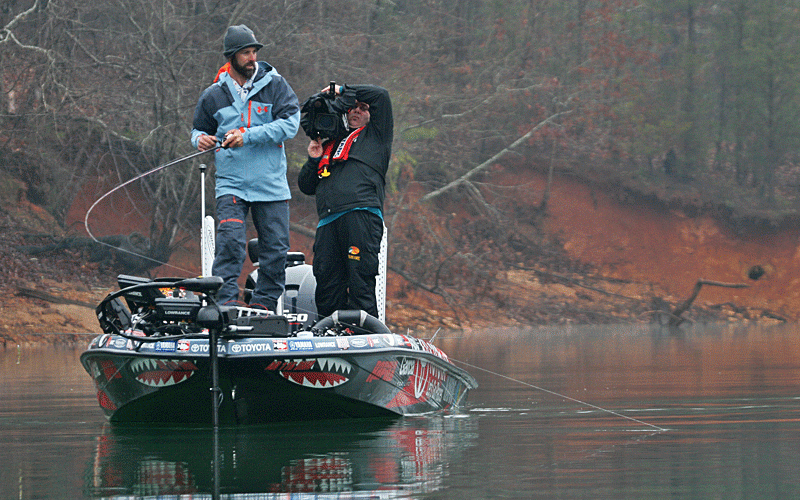
Well, it’s changed and it hasn’t. It hasn’t changed in the way I get ready for a tournament or prepare my strategy. My preparation has literally been the same since the early ’90s when I was in my first club, the Top Rod Bassmasters. I research at home, come up with a game plan, come up with a backup game plan and prepare as much off the water as possible.
What’s different is my mindset. Early on, I wanted to get established. I was thinking about longevity, consistency, qualifying for the next level, earning points. But as you mature, and you’ve proved you can win and you have more confidence, your desire to go for it more and take more chances increases. I can fail more easily now, which is great because it puts me in position to win.
Also, I’ve matured as a person. In the late ’90s or early 2000s, if I lost a fish or something bad happened, I was so devastated that I couldn’t get my head around it. I’ve become better at dealing with bad moments and moving on. At the Delaware River tournament, I only had two fish and broke off my third on that first day. Had that happened 10 years ago, I would have been done. But at the Delaware, I was still mad, but I realized the fish were starting to bite elsewhere, and I was able to put it behind me quicker.




